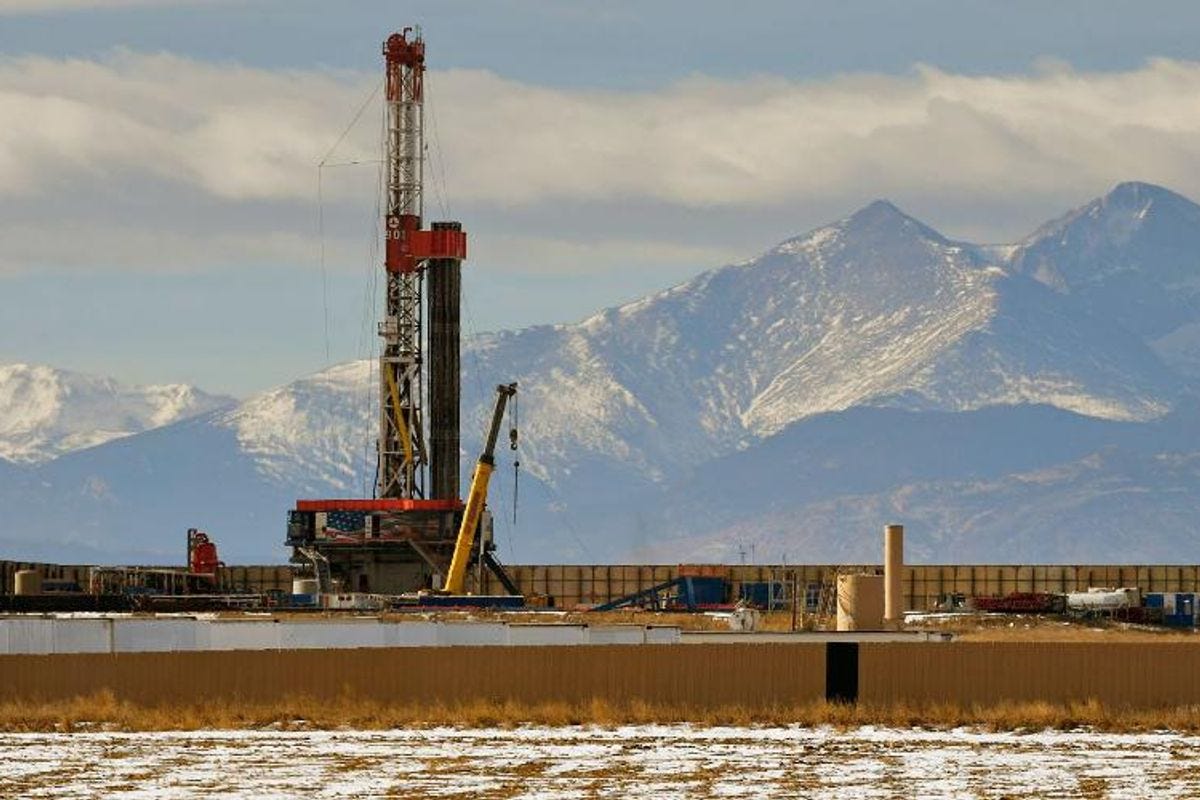Colorado Courts Redefining "Production" in Oil and Gas
Clarification on language could create more certainty on when a lease ends, instead of individual leases needing to be interpreted on their own terms
A ruling happened this week in a Boulder County case with implications for oil and gas leases statewide.
The Colorado Supreme Court recently declined to adopt a broad definition of what defines “production” in lease language that can dictate whether a lease ends, instead saying individual leases need to be interpreted on their own terms.
The Daily Sentinel is reporting that the court upheld a Colorado Court of Appeals ruling reaffirming a lower-court ruling that two Crestone Peak Resources leases with Boulder County weren’t terminated under cessation-of-production clauses when production had to be temporarily shut in to allow for repairs to a pipeline.
But the high court said its ruling is based on the terms of the individual leases. It rejected the appeals court’s finding that under a “commercial discovery rule,” the leases hadn’t terminated under the cessation-of-production clauses because “production” in Colorado means “capable of producing oil or gas in commercial quantities.”
“Although the commercial discovery rule may aptly reflect the intentions of the parties to some leases, it is unnecessary and unwise for us to universally impose its definition of ‘production’ in every oil and gas lease, regardless of the context,” six high court justices unanimously ruled in an opinion written by Justice Monica Márquez.
Crestone Peak bought its interest in the leases from Encana Oil & G as in 2015. Boulder County sued Crestone Peak in 2018 over the leases, which the county became a party to after acquiring property and mineral rights tied to the two leases in the 1980s and 1990s.
According to a footnote in the high court ruling, Boulder County’s suit appears to have been initiated by Crestone’s application to the state to expand its operations under the leases.
Encana delivered gas from the wells to an Anadarko Petroleum pipeline. It had shut in wells on the two leases for about four months after Anadarko notified it in March 2014 that it needed to close the pipeline for repairs.
According to the ruling, oil and gas leases typically include a primary term of a fixed period when the lessee has no duty to operate on the lease, followed by the secondary term lasting as long as oil and gas are produced. Generally a lease doesn’t extend to its secondary term unless production is achieved.
In rejecting the application of the commercial discovery rule to the Boulder County case involving leases in their secondary term, the high court said it disagreed with the appeals court’s “sweeping statement that ‘production is production, whether in the primary or secondary term.’”
It said it was vacating the part of the appeals court ruling “broadly adopting the commercial discovery rule to mean that production’ in Colorado oil and gas leases means ‘capable of producing oil or gas in commercial quantities,’ regardless of the context of its use.”
The high court said Boulder County asked it to establish a universal definition of production that requires extraction, but it disagrees.
It said, “we decline to adopt a universal rule defining ‘production’ in Colorado oil and gas leases and instead continue our tradition of interpreting its meaning by looking to the context of its use in a particular lease.”
In a news release, Boulder County said that while the high court’s ruling left the leases in place, “it overturned a legal ruling that was unfavorable to the owners of oil and gas leases across the state, including the county.” The high court rejected an appeals court ruling holding “that the existence of a well that could produce oil or gas, even if it was not doing so, meant that production had not actually stopped,” the county said in the release.
“(The) ruling by the Colorado Supreme Court takes a poor piece of law off the books,” Kate Burke, the county’s senior assistant county attorney, said in the release. “Although we didn’t get the full outcome we were hoping for, the rejection of the appeals court’s legal conclusion is a win for the county and other mineral owners going forward.”
The Carbon Conference 2024 will bring sustainable stakeholders and energy enthusiasts together that wish to capture CO2 emissions safely and transport the CO2 via pipelines, allowing the captured CO2 to be permanently stored in deep underground formations. The Carbon Conference 2024 is dedicated to advancing the necessary conversation regarding carbon emissions, capture, transportation, and storage.
The Conference Center at the Tuscany Suites & Casino in Las Vegas, Nevada, is the perfect venue to encourage productive discussions and diverse dialogue - both pro and con - everyone’s voice will be heard in order to find a positive path forward for all parties concerned.
The Carbon Conference has partnered with the Energy Exposition & Resources Symposium for multiple reasons. Their 25 years of successful Energy Exposition conferences is extremely valuable experience in the Carbon Conference's first year, however what may be more important is why it started.
Over 25 years ago, Wyoming was in the middle of an energy dispute similar to the carbon pipeline and storage issues. The Energy Exposition was started in order to broker peace and bring all voices to the table in a conference format. Twenty-five years later a similar situation is presented in the world of carbon.
We believe this partnership with the Energy Exposition & Resources Symposium will ensure fair deals will get done and peace will be brokered at the Carbon Conference 2024 Las Vegas.
The Carbon Conference is limited to 500 stakeholders, policymakers, impacted parties, and industry experts to ensure a solution-focused event, bringing together as many decision-makers to the table in order to discuss all the pressing issues related to carbon emissions.
We encourage you and/or your company to participate in this remarkable event. Sponsorships will not only allow your participation at the conference, but also provide your company with valuable exposure to a diverse audience of multi-industry professionals and stakeholders.
To reserve Exhibit Space at the Energy Exposition or Carbon Conference, contact
Austin F. Jennings III
239-898-3923
austin (at) energyexposition (dot) com








